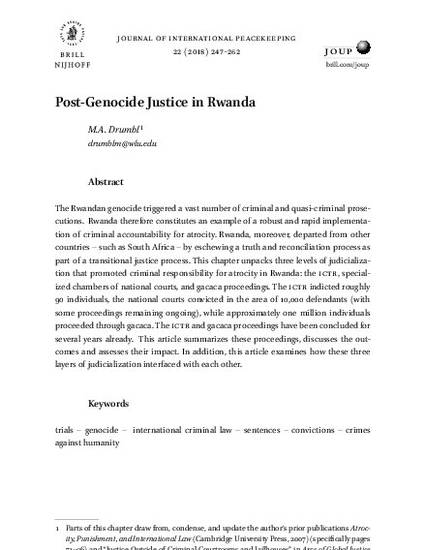
The Rwandan genocide triggered a vast number of criminal and quasi-criminal prosecutions. Rwanda therefore constitutes an example of a robust and rapid implementation of criminal accountability for atrocity. Rwanda, moreover, departed from other countries – such as South Africa – by eschewing a truth and reconciliation process as part of a transitional justice process. This chapter unpacks three levels of judicialization that promoted criminal responsibility for atrocity in Rwanda: the ICTR, specialized chambers of national courts, and gacaca proceedings. The ICTR indicted roughly 90 individuals, the national courts convicted in the area of 10,000 defendants (with some proceedings remaining ongoing), while approximately one million individuals proceeded through gacaca. The ICTR and gacaca proceedings have been concluded for several years already. This article summarizes these proceedings, discusses the outcomes and assesses their impact. In addition, this article examines how these three layers of judicialization interfaced with each other.
